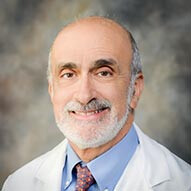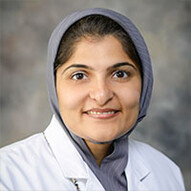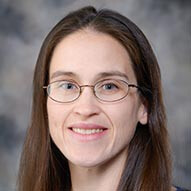Pediatric papillary thyroid cancer (PTC)
What is pediatric papillary thyroid cancer (PTC)?
Papillary thyroid carcinoma is the most common type of cancer of the thyroid gland, accounting for about 85-90% of all pediatric thyroid cancer diagnoses.
What are the signs and symptoms of pediatric papillary thyroid cancer (PTC)?
Many children will not have any symptoms when they are diagnosed or until the disease has progressed.
Papillary thyroid carcinoma is most commonly found as a lump or swelling in the neck. Parents may notice a change in their child’s voice, or their child may complain of neck or throat pain, difficulty breathing, or a “lump” in their throat when swallowing.
Sometimes it is identified only incidentally after a radiologic study of the neck is ordered for another reason and a lesion is seen in the thyroid gland.
How is pediatric papillary thyroid cancer (PTC) diagnosed?
History and physical
Blood work
Fine needle aspiration
Based on the results of these and possible additional studies, a treatment plan will be recommended.
What are the causes of pediatric papillary thyroid cancer (PTC)?
As with all types of cancers, papillary thyroid carcinoma is caused by the reproduction of abnormal cells forming what is known as a tumor. The exact trigger for this growth is unknown.
How is pediatric papillary thyroid cancer (PTC) treated?
The extent of surgical and medical treatment will depend on the extent of your child’s disease.
Surgery - Initial treatment consists of surgical excision of all or part of the thyroid gland. Papillary thyroid carcinoma can spread through the body’s lymphatic system to lymph nodes in the neck adjacent to the thyroid gland and beyond, and surgical removal of these lymph nodes may also be required. In more advanced cases it may spread to the lungs.
Radioactive iodine treatment - Once surgical treatment is complete, radioactive iodine treatment is administered. Radioactive iodine treatment involves taking a pill that targets and kills any remaining thyroid tissue left after surgery.
Chemotherapy or external radiation - In rare cases chemotherapy or external radiation may be required to treat extensive or residual disease.
Pediatric papillary thyroid cancer (PTC) doctors and providers
 Perrin White, MDPediatric Endocrinologist
Perrin White, MDPediatric Endocrinologist Soumya Adhikari, MDPediatric Endocrinologist
Soumya Adhikari, MDPediatric Endocrinologist Abha Choudhary, MDPediatric Endocrinologist
Abha Choudhary, MDPediatric Endocrinologist Melissa Ham, MDPediatric Endocrinologist
Melissa Ham, MDPediatric Endocrinologist Huay-Lin Lo, MDPediatric Endocrinologist
Huay-Lin Lo, MDPediatric Endocrinologist Muniza Mogri, MDPediatric Endocrinologist
Muniza Mogri, MDPediatric Endocrinologist Nivedita Patni, MDPediatric Endocrinologist
Nivedita Patni, MDPediatric Endocrinologist Amanda Shaw, MDPediatric Endocrinologist
Amanda Shaw, MDPediatric Endocrinologist Ming Yang, MDPediatric Endocrinologist
Ming Yang, MDPediatric Endocrinologist